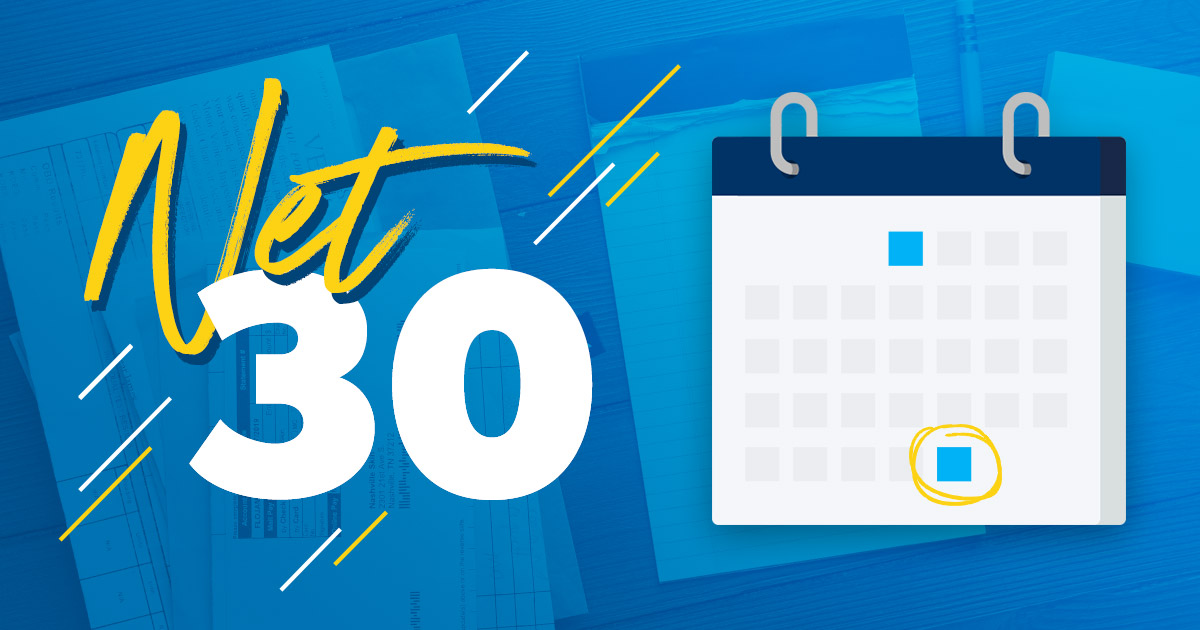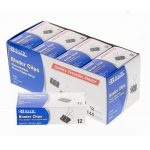In the world of business, where financial flows and credit decisions are crucial for sustainability, navigating payment terms effectively is key. One popular payment option within the business-to-business (B2B) realm is the Net 30 terms agreement.
This arrangement allows buyers to have a 30-day grace period from the invoice date to settle their payment. Offering a mix of flexibility and security, Net 30 terms can be a game-changer for businesses in managing cash flow while fostering strong relationships. Let’s delve into how a Net 30 terms agreement template can protect your business interests and ensure efficient payment management.
Understanding Net 30 Terms Agreements Templates
Navigating the business world often requires clear understanding of payment terms that support healthy cash flow management. Among the most commonly adopted arrangements is the Net 30 terms agreement. This structure can provide considerable benefits for both buyers and sellers, playing a critical role in maintaining smooth business operations.
Definition and Basic Concept
At its core, a Net 30 terms agreement is a payment arrangement where a buyer is given a 30-day window from the date of the invoice to complete the payment for goods or services purchased. It is a form of trade credit that allows the buyer some leeway to manage their finances while ensuring sellers know when they can expect to receive payment. This structure can be crucial for businesses operating in environments where cash can be tight, allowing for a cushion of time to manage expenses more effectively.
Implications for Buyers and Sellers
The implication of Net 30 terms for buyers is primarily providing them with the flexibility to strategize their financial moves. Buyers are granted time to sell products or use the services before payments are due, easing potential cash flow constraints. This delay in payment empowers businesses, especially SMEs, to optimize their financial strategies without immediate pressure.
For sellers, offering Net 30 can be a strategic decision. It expands potential customer bases and supports stronger, longer-term relationships with clients by demonstrating flexibility and trust. Although it means waiting for payment, it can often translate into increased sales, as clients are more attracted to favorable terms.
However, the agreement’s success for both sides relies heavily on trust and sound financial management, both critical in avoiding late payments and maintaining healthy business relationships.
Benefits of Net 30 Terms for Buyers
Choosing Net 30 terms doesn’t just ease immediate financial pressure; it can also provide new opportunities and advantages for the buyer beyond simple cash flow management.
Strategic Financial Planning
Net 30 terms enable buyers to engage in more deliberate strategic financial planning. By knowing the timeline for when payments are due, businesses can budget more effectively, anticipate future cash needs, and plan their expenditures around a predictable schedule. This planning means resources can be allocated more efficiently, helping companies align their financial goals with their operational strategies.
Improved Negotiating Power
When buyers have the option of Net 30 terms, they may find themselves in a stronger negotiating position. This payment structure can be especially advantageous in competitive markets or when initiating relationships with new suppliers. With a degree of financial flexibility, buyers are sometimes able to negotiate better prices, extended payment terms, or additional perks such as improved service conditions, which can enhance overall business efficiency.
Inventory Management
For businesses dealing with physical products, effective inventory management is crucial. Net 30 terms allow buyers to purchase inventory, sell it, and then use the proceeds to pay the supplier. This capability helps in maintaining an optimal inventory level without having to immediately commit cash, thereby freeing up funds for other strategic initiatives until the payment is actually due.
Additional benefits include reduced reliance on expensive short-term financing options, which can mitigate interest costs and improve financial autonomy.
By paying invoices on time, businesses can also foster better relationships with their suppliers. This consistency and reliability can lead to receiving priority services or preferential terms in the future, enhancing overall business operations.
Overall, the benefits realized from Net 30 terms highlight the balance between operational flexibility and strategic financial management. Buyers need to remain diligent about meeting the payment terms to maintain these advantages and continue to benefit from this relationship-friendly financial arrangement.
Benefits of Net 30 Terms for Sellers

When it comes to offering Net 30 terms, the perks for sellers extend beyond just racking up more sales or expanding the customer base. Let’s delve into how these terms can bolster your operations and cultivate important relationships.
Strengthened Customer Relationships
Imagine setting up a payment arrangement that doesn’t just serve your business but also makes your customers’ lives easier. That’s where Net 30 terms shine.
By providing this flexible option, sellers can nurture goodwill and set the foundation for long-lasting relationships. It shows customers that you’re not just another company—they’ll see you as a partner who understands their needs and trusts them enough to extend payment terms. This level of service can lead to repeat business and positive word-of-mouth, turning satisfied customers into advocates for your brand.
Competitive Advantage
In the bustling business landscape, any opportunity to stand out can serve as a game-changer. Offering Net 30 terms can give your business a competitive edge, particularly in markets saturated with similar products or services.
While price is a crucial factor for many clients, favorable payment terms can capture the attention of price-sensitive buyers or larger enterprises with standard payment cycles. By meeting these expectations, your business positions itself as a preferred partner, drawing in clientele who value flexibility and understanding.
Improved Cash Flow Forecasting
Although Net 30 terms imply a waiting period for payment, they nonetheless afford sellers a better handle on financial projections. Knowing precisely when payments are due allows for more dependable cash flow forecasting—freeing you from last-minute financial scrambling. This predictability aids in effective resource allocation and informed decision-making. Plus, fewer surprises mean you can plan more strategically for growth and investments.
Top Net 30 Vendor Spotlight: The CEO Creative

Navigating the world of Net 30 vendors can be tricky, but one name that stands out is The CEO Creative. Known for reliability, integrity, and a client-first approach, The CEO Creative has carved out a niche as a trusted partner in the realm of Net 30 transactions.
Their robust selection of products and services is tailored to meet the varying needs of different industries, ensuring that customers receive precisely what they need.
What sets them apart is their streamlined invoicing and payment processes—a feature that simplifies the transactional experience for buyers. Add to that their unwavering commitment to quality, punctual delivery, and responsive customer support, and it’s clear why The CEO Creative is a vendor of choice.
By engaging with The CEO Creative, businesses benefit not only from the standard advantages of Net 30 terms but also from the reliability and transparency that come with a reputable vendor.
They stand out for their transparent communication, competitive pricing, and core commitment to customer satisfaction, ensuring that each transaction is as smooth and beneficial as possible. Choosing The CEO Creative as your Net 30 vendor means partnering with a team that’s as invested in your success as you are.
Whether you’re aiming to cement stronger customer ties, gain an upper hand in your field, or streamline your financial planning, Net 30 terms can be a valuable resource for bolstering your business. And when paired with a dependable vendor like The CEO Creative, the prospects only get brighter. So, embrace these terms confidently and watch as your business navigates toward sustaining growth and success.
Strategies and Best Practices
Harnessing the advantages of Net 30 terms can be a game-changer for both buyers and sellers, but it requires smart strategies and attention to detail. Let’s delve into some best practices tailored for both parties to maximize the benefits while safeguarding business interests.
Best Practices for Buyers
Navigating Net 30 agreements as a buyer requires proactive management to fully leverage the benefits without falling into pitfalls:
– Thorough Due Diligence: Before committing to a Net 30 agreement, research the seller’s reputation and financial standing. Look up reviews and verify their track record to ensure reliability.
– Clear Communication: Stay in regular contact with sellers to address any questions regarding payment terms or product details. Transparent communication can prevent misunderstandings.
– Timely Payments: Avoid late fees and maintain strong credit by making payments on time. Set up reminders or automate payments so deadlines aren’t missed.
– Negotiate Terms: Don’t shy away from negotiating favorable terms or discounts, especially if you have a solid payment history or repeat business. Sellers might offer early payment discounts that save you money.
– Effective Financial Planning: Integrate Net 30 obligations into your budgeting process to ensure you’re ready when due dates arrive. This helps in maintaining smooth cash flow without unexpected strains.
Best Practices for Sellers
For sellers, offering Net 30 terms can boost sales and widen your client base. However, it’s essential to mitigate risks associated with delayed payments:
– Assess Creditworthiness: Before offering Net 30 terms, evaluate the potential buyer’s credit history and financial health. This helps in minimizing the risk of defaults.
– Draft Comprehensive Contracts: Clearly outline all payment conditions, like due dates and penalties for late payments, in a formal contract to set clear expectations from the outset.
– Prompt Invoicing and Reminders: Issue invoices promptly and follow up with regular reminders to ensure payments are not delayed. Use automated tools for efficiency.
– Open Communication: Be proactive in reaching out to customers about any payment issues. A collaborative approach can often resolve concerns quickly.
– Monitor Credit and Payment Trends: Keep an eye on clients’ credit and payment behaviors, adjusting terms if needed to protect your cash flow.
– Utilize Technology: Employ invoicing software and CRM tools to streamline billing and monitor payments. These systems can automate reminders, making timely payments more likely.
By integrating these best practices, both buyers and sellers can benefit from the flexibility of Net 30 agreements, protected by a framework that enhances operational efficiency and fosters trust-filled relationships.
Conclusion
In conclusion, adopting a Net 30 terms agreement can be a strategic move for businesses looking to protect their interests while fostering growth and stability. This agreement provides flexibility in financial planning for both buyers and sellers, making it a win-win situation. By offering a clear framework for payment, businesses can enjoy improved cash flow forecasting and build stronger relationships with partners.
However, with this flexibility comes the need for responsibility and careful management. By conducting thorough due diligence, maintaining clear communication, and adhering to timely payments, buyers can leverage the benefits of Net 30 terms without compromising financial stability.
Sellers, on the other hand, must ensure the creditworthiness of their customers and employ proactive strategies, such as comprehensive contracts and invoicing reminders, to safeguard their interests.
Ultimately, the key to unlocking the full potential of Net 30 agreements lies in a balanced approach that emphasizes transparency, communication, and trust. By embracing these best practices, businesses can mitigate risks and pave the way for mutual success in the vibrant and ever-evolving marketplace. So, take the first step towards securing your business’s future by implementing a robust Net 30 terms agreement today!









